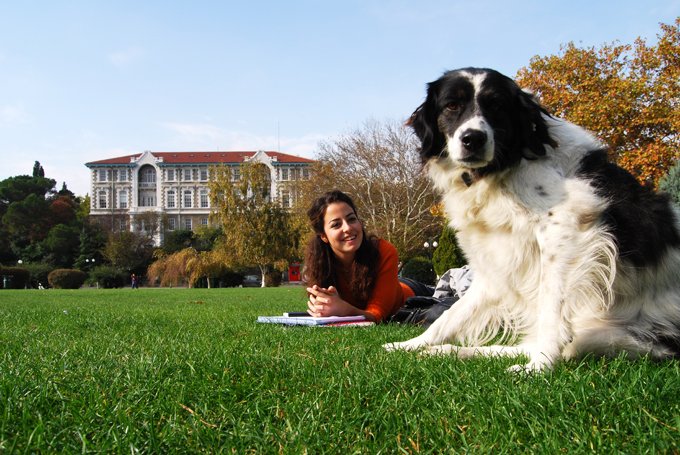
As dog parents, we all are aware that our dogs help us reduce stress and loneliness. Well, researchers at Georgia State University, Idaho State University, and Savannah College of Art and Design agree. They conducted a joint study proving that animal-assisted therapy dogs do exactly that.
The scientists provided animal-assisted therapy dogs to 55 students in a group setting, and found a 60 percent decrease in self-reported anxiety and loneliness. Group sessions were held two times a month, and students were invited to pet, hug, feed, brush, photograph, sit near, and play fetch with the therapy dog.

The researchers noted that they have seen an increase of students participating in counseling centers on their campuses due to the daily demands of college life. The researchers writes, “The prevalence of anxiety and loneliness on college campuses has increased, placing extra demands on college counseling centers. Budget strains have made it necessary for these centers to find creative ways to meet the needs of their students.”
According to Dr. Franco Dispenza of Georgia State, “College counseling centers are also becoming more and more reflective of community mental health agencies. That’s something that’s been noted in the field in probably the last 10 to 15 years. College counseling centers aren’t seeing students struggling with academics, which major to pick, or how to study. They’re coming in with post-traumatic stress disorder, anxiety disorders, pervasive mood disorders, and considerable contextual strains that are happening out in the world, such as poverty and experiences of homelessness, as well as a history of medical issues and family health issues.”

Dr. Lindy Parker, also of Georgia State University, notes, “The presence of a therapy dog facilitates a therapeutic connection between the client and the mental health professional. When you’re trying to do mental health work with someone, establishing that therapeutic relationship and rapport is so important.”
Sources: Associations of Schools and Programs of Public Health, Journal of Creativity in Mental Health, Georgia State University





